2019 New Zealand-Australian Controlled Release Society Joint Workshop
The 2019 joint New Zealand-Australian Controlled Release Society Workshop was held at the School of Pharmacy, University of Otago, Dunedin, New Zealand on the 20th and 21st of November. The New Zealand Chapter of the Controlled Release Society (NZCRS) was pleased to play a role in organising the event. The symposium was attended by 35 participants, including summer students, honours students, postgraduate students, academic scientists and industry. The workshop theme is “Improving bioavailability”, bringing together experts in the field to give a broad overview on challenges and strategies to enhance drug bioavailability.
The workshop began with an opening speech from Dr Greg Walker – the president of NZCRS local chapter. Dr Walker warmly welcomed all the participants joining the workshop and was grateful to the international guest speakers, including Prof. Bruno Sarmento (University of Porto), Prof. Ben Boyd (Monash University) and Dr Zachary Houston (University of Queensland), for their time and distance travelled, the work of the organizing team, and the sponsors. The main sponsor for this workshop was Douglas Pharmaceuticals (Auckland, New Zealand), with further financial support from Total Lab Systems (Auckland, New Zealand), ATA Scientific (New South Wales, Australia), and Otago School of Pharmacy for kindly providing the workshop venue.
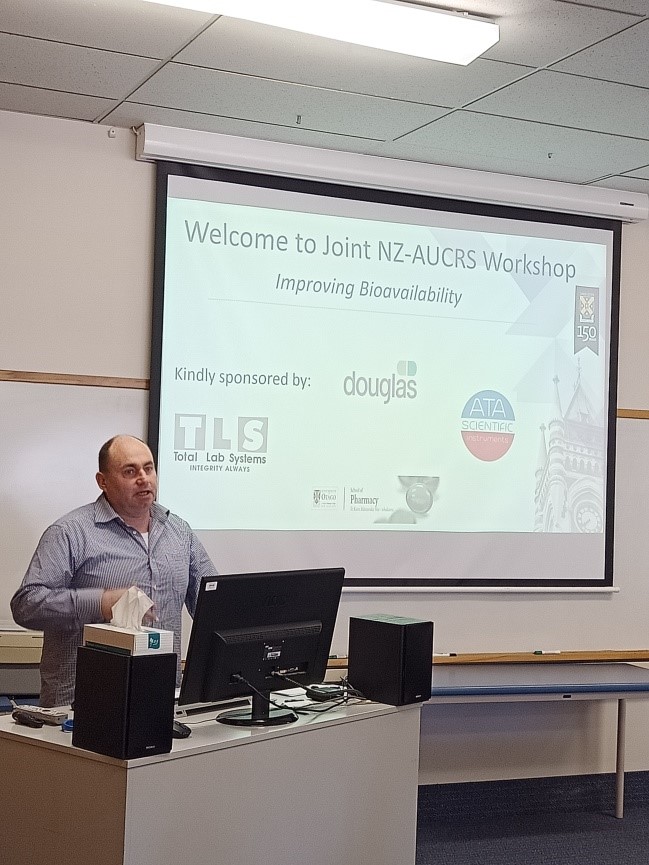
The first session started with a keynote lecture entitle ‘Oral peptide delivery – Improving bioavailability through formulation”, given by Prof. Bruno Sarmento. Oral delivery of peptides and other biologics faces many challenges such as degradation by gastrointestinal enzymes and low absorption. In this presentation, Prof. Sarmento introduced different approaches to overcome these difficulties using functionalised nanoparticles.

After a tea break, the first workshop activity began under the guidance of Dr Allan Gamble and Assoc. Prof. Arlene McDowell (University of Otago), looking at the strategies to improve current therapies using pro-drugs and nanoparticles. Dr Gamble gave an overview about pro-drugs and common techniques to produce pro-drugs, as well as the advantages of the pro-drugs in enhancing drug solubility, absorption, stability and safety. Following that, Assoc. Prof. McDowell introduced a potential approach to use the nanoparticulate systems for delivery of active pharmaceutical ingredients to improve the drug bioavailability. There were also case studies given to participants for discussion at the end of this session.
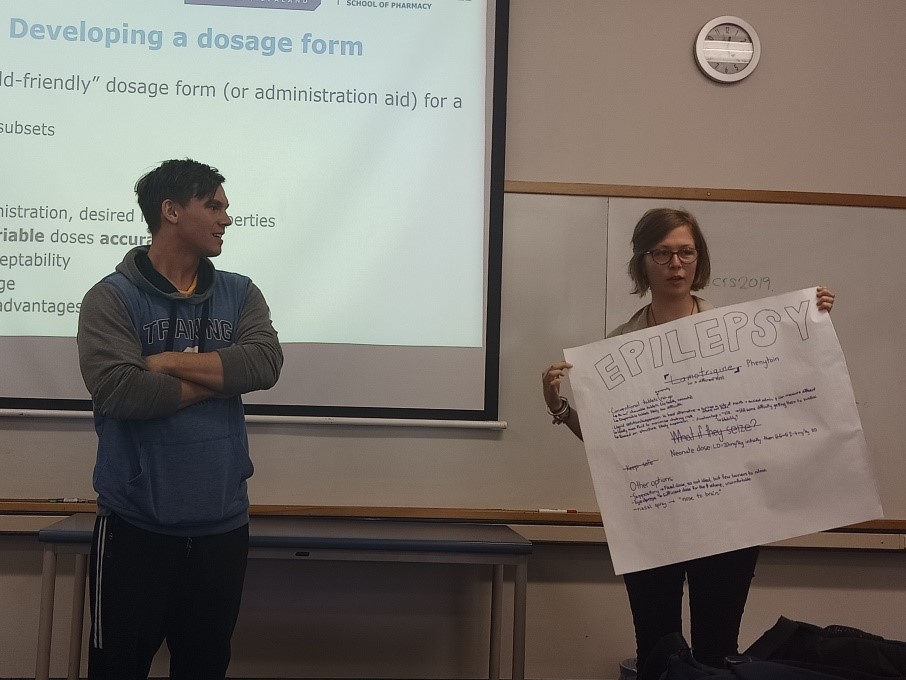
The annual general meeting of NZCRS was organized at the end of the first day. Dr Greg Walker summarized the activities of NZCRS over the year, giving updates on the budget situation and upcoming activities of NZCRS. The election for the next two-year term will take place early next year through online voting. The NZCRS members contributed ideas and opinions for the coming election and next year activities.
To start the second day, Prof. Bruno Sarmento and Prof. Ben Boyd led a workshop section entitled “Bioavailability of poorly water-soluble and large molecule drugs”. The attendees were given six case studies for group discussion about the typical physicochemical and biopharmaceutical issues that lead to the need for a drug delivery system. Participants also learned to justify the selection of a formulation to overcome a particular problem and understand the advantages and disadvantages of employing a drug delivery system in a product.
The next workshop activity was moderated by Dr Sara Hanning (University of Auckland) and Assoc. Prof. Natalie Medlicott (University of Otago) with a topic titled “Bioavailability considerations in special populations”, looking at developing the ‘child-friendly’ formulations with considerations of the safety and administration feasibility for paediatric patients. This workshop section also came with case studies for group discussion.
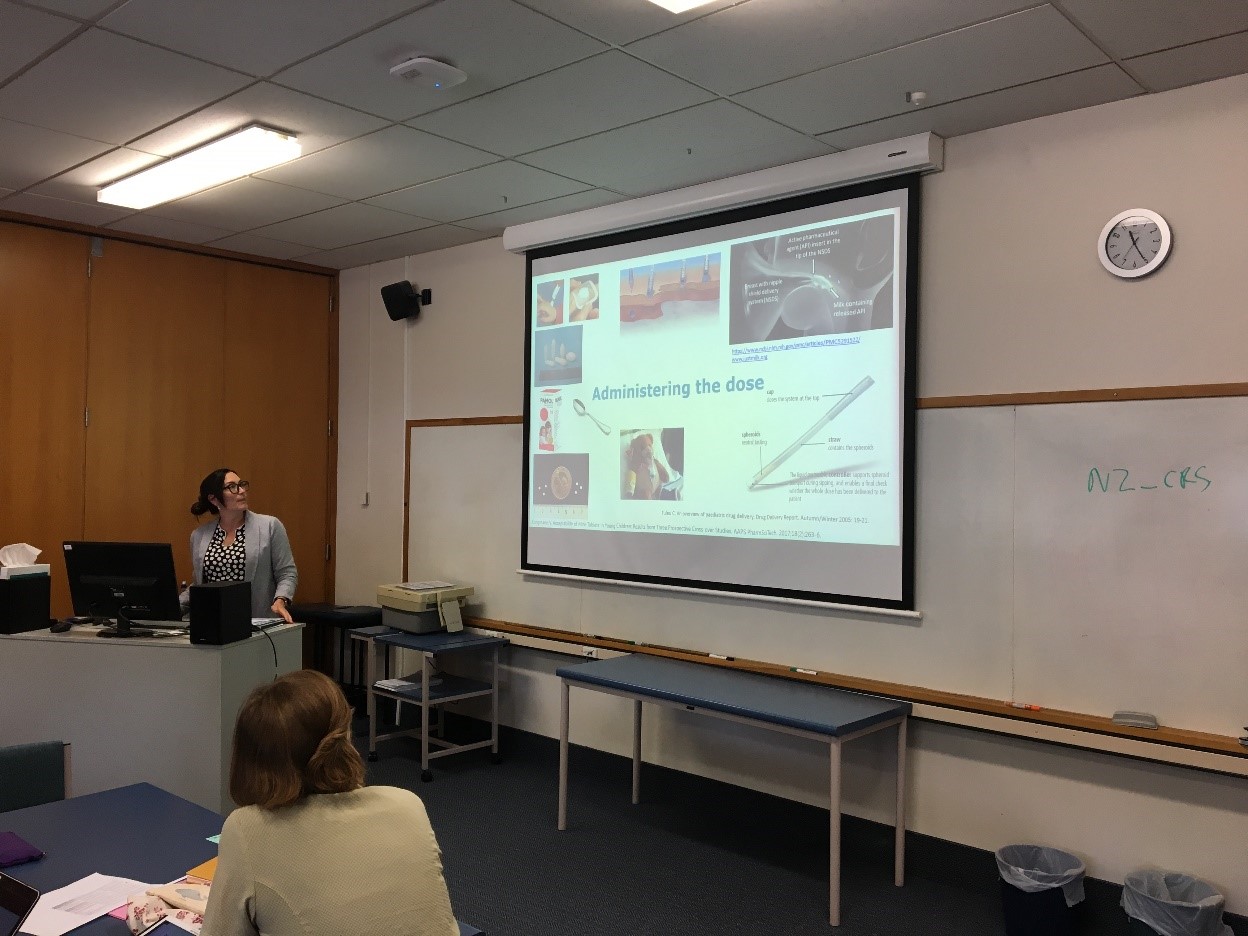
The afternoon workshop started with a section entitled “Tools to predict bioavailability: bioimaging and dissolution”. Dr Zachary Houston showed the steps to establish a method for diagnosing and monitoring response to treatment of a brain tumour. During the process of developing this method, the attendees also learned about the major imaging techniques available and the type of information that can be obtained from the imaging techniques for determining bioavailability. After that, Dr Shyamal Das presented common methods to test the dissolution of drug formulations.
Prof. Stephen Duffull and Dr Greg Walker (University of Otago) led the final workshop section about the in silico modelling as a potent method to predict bioavailability. Two moderators explained how the mathematical modelling can help in designing the drug dosage form and predicting the pharmacokinetics of formulations.
To close the successful two-day workshop, Dr Greg Walker gave a closing remark to summarize the contents of the workshop and thanked the speakers and attendees again for their amazing talks and stimulating discussion.
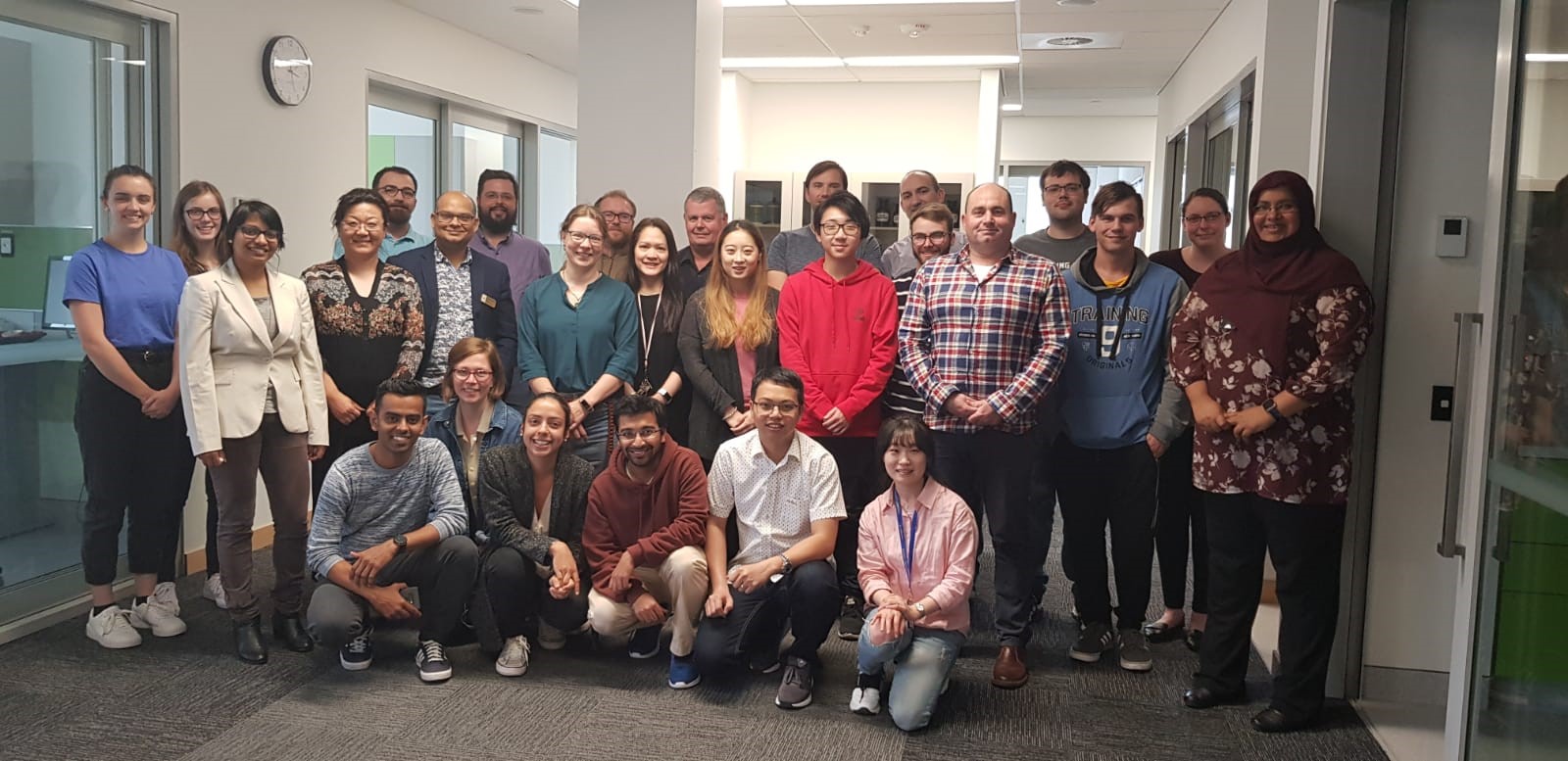
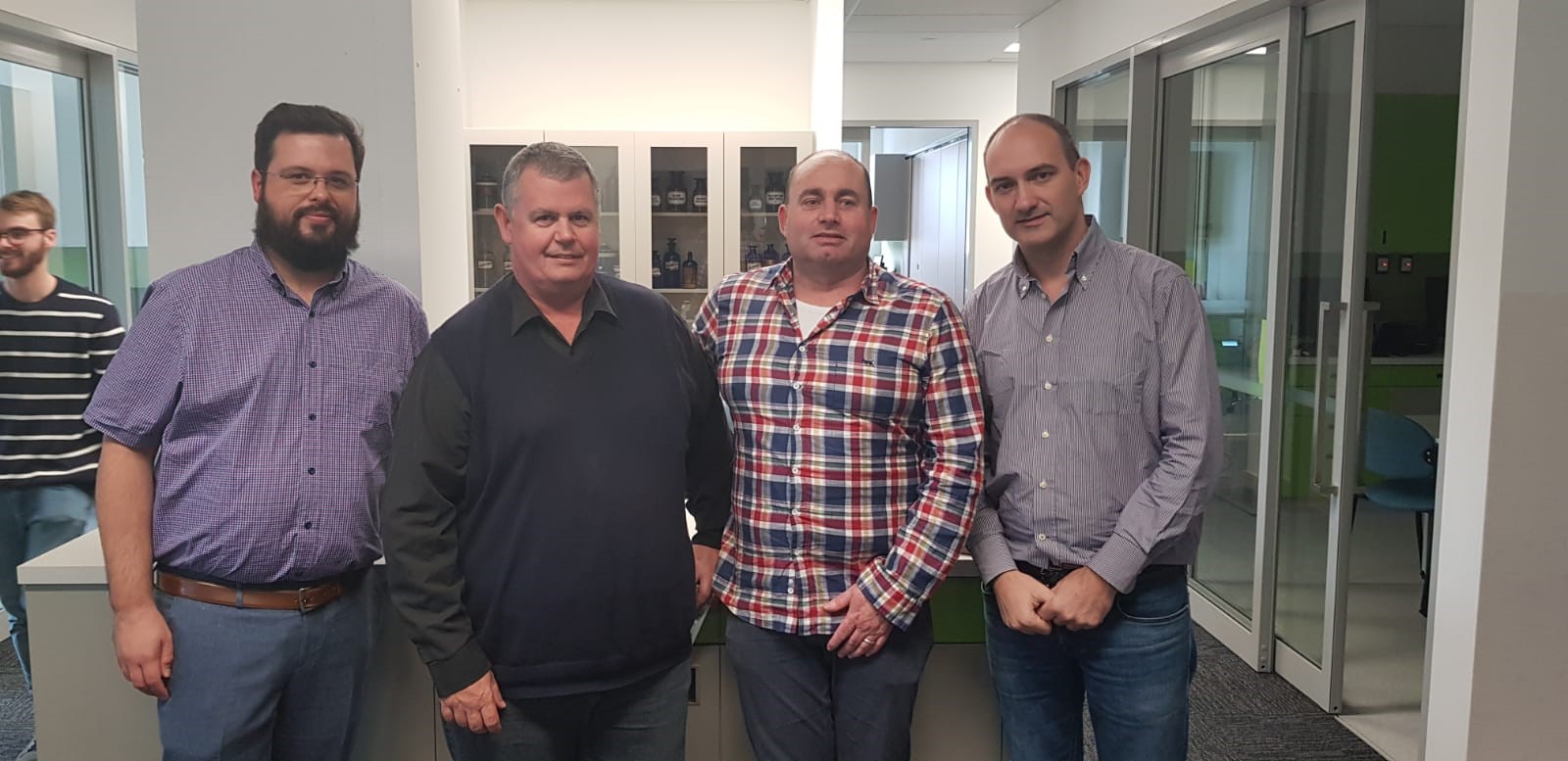
Along with lectures and workshop activities, other social activities such as ice-breaking games and the workshop dinner were organized, so that all the participants not only work together on a shared goal, but also to get to know one another socially and to create opportunities for networking.
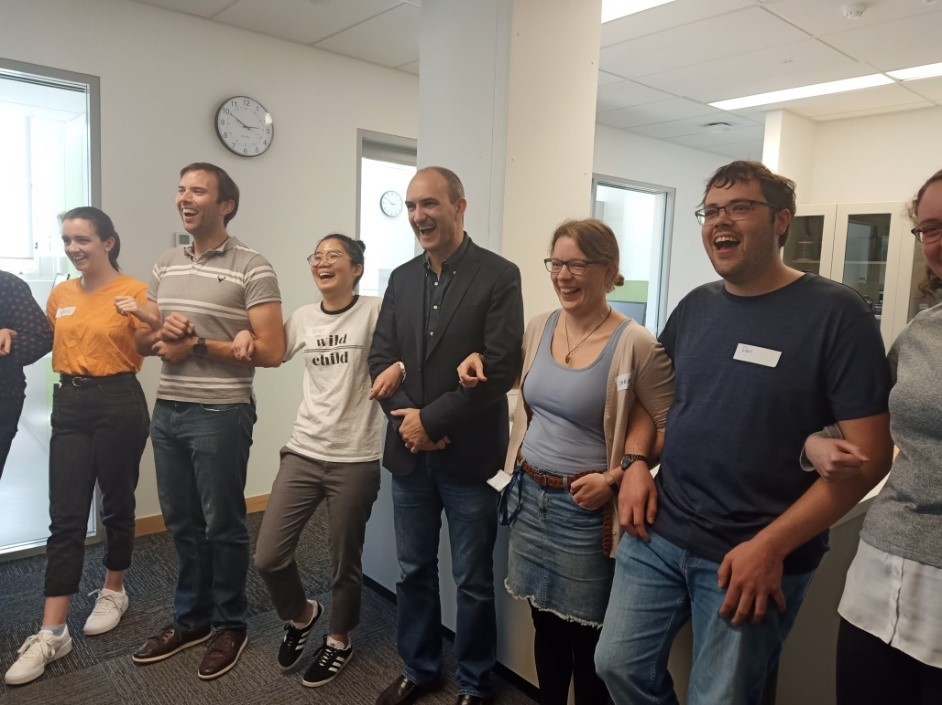
For more information about the NZCRS local chapter and our upcoming events and activities, please visit our website: www.nzcrs.org.nz

